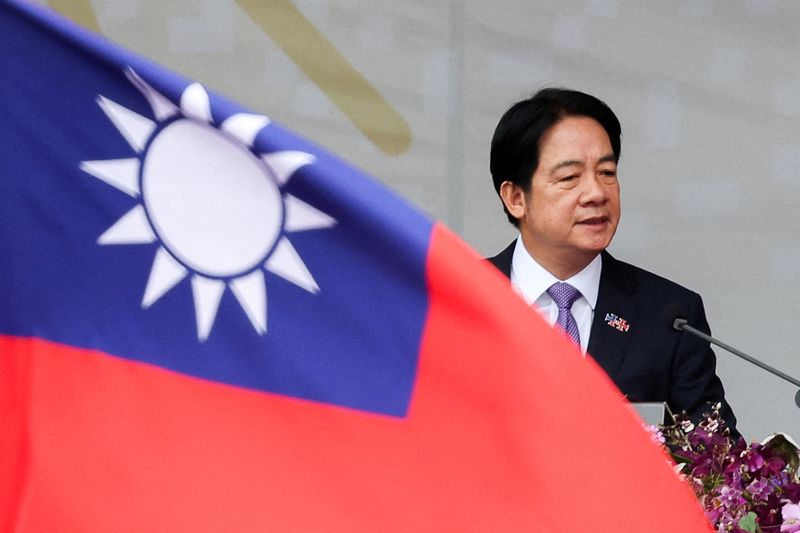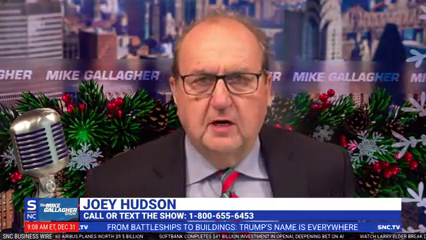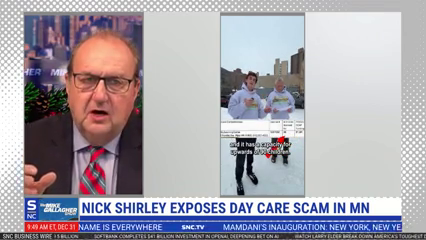Exclusive-Taiwan president plans Hawaii visit on sensitive trip to Pacific, sources say

By Michael Martina, Trevor Hunnicutt, Yimou Lee and Ben Blanchard
WASHINGTON/TAIPEI (Reuters) – Taiwan President Lai Ching-te is planning to stop in Hawaii and maybe Guam on a visit to Taipei’s diplomatic allies in the Pacific in the coming weeks, sources told Reuters, a sensitive trip coming shortly after the U.S. election.
Lai, who won election in January, has yet to travel overseas since taking office in May. China, which views democratically governed Taiwan as its own territory, detests Lai as a “separatist” and routinely objects to any interaction between Taiwan’s government and foreign officials.
Six sources briefed on the visit, speaking on condition of anonymity given the sensitivity of the matter, told Reuters that Lai is planning a stopover in Hawaii as part of an overseas trip starting in the coming weeks.
A stopover in the U.S. territory of Guam was also being discussed, four of the sources said. Both Hawaii and Guam are home to major U.S. military bases.
Two of the sources said that the stopovers would be part of Lai’s visit to Taiwan’s diplomatic allies in the Pacific.
The Pacific countries of Marshall Islands, Tuvalu and Palau are three of the 12 remaining states which maintain formal ties with Taipei. Reuters was unable to determine precisely which countries Lai would go to and dates of the visits.
Taiwan’s presidential office said Lai “at present has no overseas trips planned”, but if he does the government will announce it at an appropriate time.
The U.S. is Taiwan’s most important international backer and arms supplier, despite the lack of formal diplomatic recognition.
“We refer you to the Taiwan authorities for the travel plans of high-level Taiwan officials. We have nothing further on this,” a State Department spokesperson said.
US GOVERNMENT CHANGING
Lai’s trip will be taking place at the tail end of the administration of President Joe Biden, who has said U.S. forces would defend Taiwan in the event of a Chinese invasion.
President-elect Donald Trump, whose first administration strongly backed Taiwan, unnerved Taipei on the campaign trail by saying the island should pay to be protected. He has since nominated pro-Taiwan Marco Rubio as secretary of state.
The Palau and Marshall Islands president’s offices and the Tuvalu government did not immediately respond to a request for comment.
Taiwan presidents typically make use of what are officially only stopovers in the United States to meet friendly U.S. politicians and give speeches. Such stopovers are typically on visits to far flung allies in the Pacific, Latin America or the Caribbean.
One person familiar with the U.S. leg said they expected Lai’s visit to be lower key than usual and that logistics are still being worked on.
The Pacific islands nations visits are also important as China has been gradually whittling away at the number of countries there who retain ties with Taiwan. In January, tiny Nauru switched relations back to Beijing.
China has ramped up its military activities around Taiwan in the past five years, including holding another round of war games in May shortly after Lai’s inauguration it said were a warning to “separatist acts”
Taiwan’s government rejects Beijing’s sovereignty claims and says it has a right to engage with other countries and for its leaders to make foreign trips.
In August of last year, China held a day of military drills around Taiwan after then-vice president Lai returned from the United States, where he officially made only stopovers but gave speeches on his way to and from Paraguay.
In April of last year, China also held war games around Taiwan in anger at a U.S. trip by then-President Tsai Ing-wen, who met then-U.S. House of Representatives Speaker Kevin McCarthy in Los Angeles.
In 2017 and 2019, Tsai stopped in Hawaii during her visits to Pacific allies.
(Reporting by Michael Martina, Trevor Hunnicutt, Yimou Lee and Ben Blanchard; Additional reporting by David Brunnstrom in Washington and Kirsty Needham in Sydney; Editing by Lincoln Feast.)









